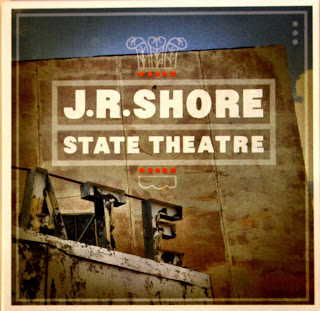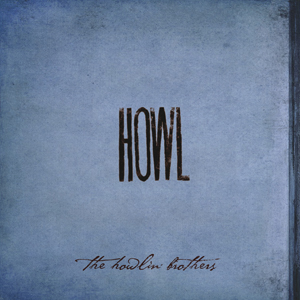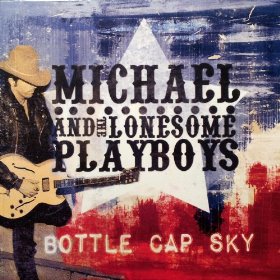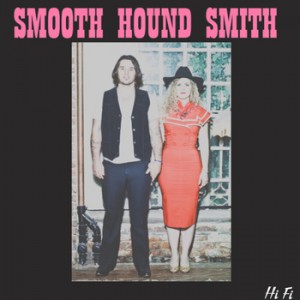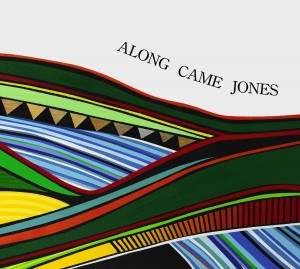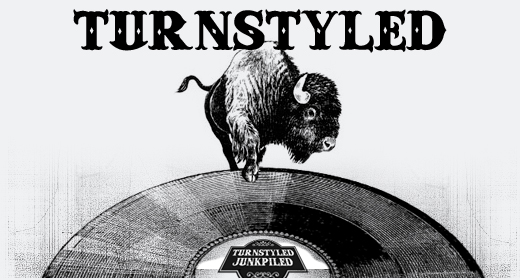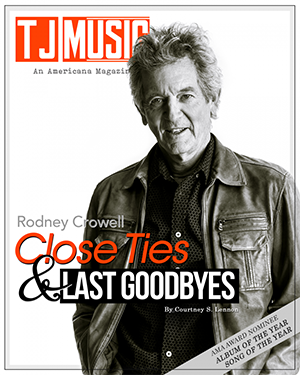J.R. Shore, Howlin Brothers, Michael and The Lonesome Playboys, Smooth Hound Smith, Along Came Jones
Written by Jonathan Shifflett
J.R. Shore
State Theater
Website: www.jrshore.com
Calgary, Alberta native, J.R. Shore, blends the sounds of the American South from Honky Tonks to steel guitar swathed Country ballads to create stories that move and characters that live and breathe. With the empathy of Randy Newman and the intrinsic toughness of Leon Russell, State Theater is convincing example of all thing precious about Southern music.
Having cut his teeth writing songs in Nashville, few would argue that Shore sounds like a Canadian. On this double album – the first side originals and the second covers – J.R. Shore is 100% American, highlighting his varied influences with seasoned musicality, punctuating his stories of obscure sportsmen and death row victims with funky organ lines and moaning guitar riffs that will give you the bends. The album starts with “Holler Like Hell,” a swampy grind with organ entrances that make you want to raise your arms and shout along. “Poundmaker,” portrays a Native American on death row who reflects: “on account of my grandfather they did not cut my hair,” a line that will make you laugh when it starts the tune and cry when it ends it. Detail is not sacrificed for the sake of diversity on State Theater.
Assigning an entire half of the album to covers is a tricky task to pull off, but it’s one that he does by keeping to the essence of the originals, altering only to accommodate the instrumentation of his band. Of the songs that he pays homage to, Neil Young’s “For the Turnstyles” is a standout, performed with all the original integrity and minus only the banjitar. By the time he’s made it through covers of The Band (“W.S. Walcott Medicine Show”), Ray Wylie Hubbard (“Redneck Mother”) and Gram Parsons (“Sin City”) it’s hard to think of State Theater as anything but an expertly crafted and soulfully delivered piece of Americana, trading plain truths with subtle humor and a whole lot of twang.
Howlin’ Brothers
Howl
(Readymade Records)
Website: thehowlinbrothers.com
Think about beer and pulled pork sandwiches and get ready to stomp a hole in your front porch. On their first full length album, Howl, the Howlin’ Brothers deliver a masterful blend of Old-Time, Bluegrass and Mississippi Delta influenced tunes that will have you struggling to decide which song to choose as track 1 for your next country roots mixtape.
With one foot on the head of a gator and the other stomping out a downbeat, Howlin’ Brothers navigate their way through the styles of the rural South, mixing up originals with a few Blue Ridge classics. As they toss the fiddle, mandolin and resonator around, these three Nashville-based, multi-instrumentalists will surely earn the respect of mountain men and plaid-clad hipsters alike. “Hermitage Hotstep,” a washtub bass and clawhammer banjo stomp, calls to mind rosin caked fingers and whisky breath as the singer roguishly hollers, “I don’t want no gal who lives in NYC, I just want a gal with me in Tennessee!” Before they finish the tune, they manage a quick mash up with the Old Timey classic, “Cluck Old Hen.” Kicking up the metronome several dozen notches, the group performs a Flatt and Scruggs worthy rendition of the John Henry variant “Take This Hammer.” Heading down to New Orleans with the track “Delta Queen” the group shows they can tootie ma as big as any fine thing as long as they have the brass section to help out. This is group knows the classic country repertoire from front to back, and are using their formidable talents to write tunes that inspire moonshine debauchery in the modern age.
Michael and the Lonesome Playboys
Bottle Cap Sky
(Blackwater Records)
Website: rocknrollpoet.com
If there isn’t a crowd that wants to play pool, drink beer and enjoy some regionally ambiguous, Country drawling, then America is definitely losing it’s sense of humor. On their second album, Bottle Cap Sky, Michael and the Lonesome Playboys deliver the kind of Lo Fi Texas honky tonks and pedal steel ballads that make drinking cheep beer worthwhile. Though the drummer may hammer out the rhythms like a casio keyboard and the lyrics serve mainly to reinforce antiquated heartbreak sentiments, the band’s latest album hearkens back to an era of raw Country music that calls for good friends and plainspoken truths to get us through the hard times.
Hailing from Orange County, Michael Ubaldini leads a posse of lap steel lickers and telecaster pickers through a series of country cliches and lonesome-isms that are decidedly catchy and infinitely nostalgic. If after the first track you aren’t saying, “he can walk through fire!” you’re thinking too hard. The predictable melodies and familiar phrases make participation a necessary and entertaining aspect of this album. “Sweet Ole’ Riddle” delivers a simple message about how men will never understand women and “J.W. Price the Texas Oil Man” slyly insinuates that oil barons aren’t very nice people. Rest assured that after listening to Bottle Cap Sky, no one will be offended (except for maybe Harold Hamm) and everyone will have had a good ole’ time.
Smooth Hound Smith
Smooth Hound Smith
(Self)
Website: smoothhoundsmith.com
Blending together the rawness of Steve Earle and the sensitivity of Joni Mitchell, singer Caitlin Doyle and one-man-band Zack Smith have that kind of duo chemistry that yields a sound bigger than one would think two people capable of creating. Having only played together for eight months, their 10 track, eponymous album is held together by musical versatility and a natural sense of Americana harmony. One thing is for sure – this Los Angeles duo makes the most of their two voices, four hands and four feet.
The opening track, “Get Low,” shows how their Juke Joint influences combined with Lo Fi production techniques can get a crowd bobbing their head in no time. “Body Talkin'” is a prime example of how they bring Southern instrumentation to the California coastal mood, setting a laid-back, maraca rhythm to a breathy melody and adorning it with musical saw, harmonica and dobro. On “30 Days” Smith picks up a banjo and counts off a Zydeco beat that alternates mandolin solo with tightly harmonized blue note slides. “Steal Your Crown” embraces the tried and true blues form, but tears off the doors, seat belts and any other extraneous parts leaving the engine exposed and humming to the sound of chunking electric guitar and searing, tweed amp vocals.
With their first big tour ahead of them, this is definitely a band to watch as they continue to tighten their sound and expand on their already varied influences.
Along Came Jones
Along Came Jones
Website: alongcamejonesband.com
Maybe one of the friendlier records of this year, Along Came Jones’ eponymous album could turn a dive bar into a drunken sing-a-long as easily as it could accompany a cakewalk at a five-year-old’s birthday party. Imagine Michael Stipe’s vocals fronting a ragtag group of Rockabilly lovers and you’re getting warmer. Add a tuba player and you will have arrived at Along Came Jones.
With a love for music that brings people together and a clear disdain for pedantry, the Oakland-based duo Dennis Finnegan and Johny Blood have created thirteen tracks that blend Delta Blues, Rockabilly, Country Swing and 60’s Psych Pop into a performance with plenty of winks and grins. “HDTV” deals out sardonic redneckisms and poignant trailer park details punctuated by hip-shot guitar riffs and steady organ grooves. “Continental Divide” is a vintage Country swing that creates, in the way only Americana can, an analogy between a geographical landmark and a relationship. After listening to their CD, you’ll not only be liking their Facebook posts, but you’ll be giving them the keys to your car so approachable and honest are their performances. Sometimes transparent in their influences, the 60’s Psych track “Hey Bluebird” sounds like a deleted track off of Revolver. The dreamy, Latin waltz “Song for Lhasa” diverts stylistically from the rest of the compositions, but, after the entrance of a tuba melody, all skepticism for this departure seems irrelevant. After all, what critic can keep their eyebrow raised against such melodic flatulence? Grounded by a love for stating the sincere, this band is a no-fail, crowd-pleaser.
Latest posts by TJ Staff (see all)
- Song premier: Brooke Graham – “Merryachi Christmas” - October 31, 2022
- Sean Devine’s Here For It All - September 7, 2021
- Video Premier: “No One Gets Pulled Over on Christmas Eve” (The Smoking Flowers) and “Santa Claus is Dead” (Dee Oh Gee) - December 22, 2020

